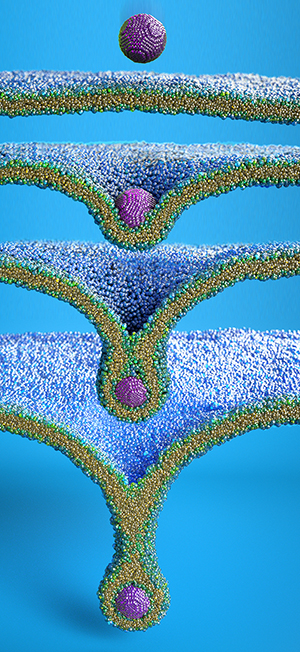
The Fredrickson group has pioneered field-theoretic simulation techniques to study the properties and phase behavior of a wide range of polymers and complex fluids. Current activities include the design of new block copolymers and directed self-assembly processes for semiconductor device patterning, studies of biologically-inspired nano-cellular high internal phase polymer alloys combining high modulus, toughness and recoverable elasticity, investigations of charge complexation in synthetic and biological polyelectrolyte solutions, and theoretical studies of "supramolecular" polymers, i.e., polymers and networks formed with non-covalent reversible bonds.
The Fredrickson group collaborates with the experimental Segalman and Hawker groups on several of these soft material research themes, and with the Leal and Helgeson groups on theoretical investigations of shear banding, strain localization, and spurt phenomena in flowing polymer solutions and blends. A collaboration between Segalman, Squires, Fredrickson, and Helgeson is exploring both theoretically and experimentally the self-assembly and ion-transport behavior of a novel class of polymerized ionic liquids with a wide range of potential applications in energy and separations.
The Shell group uses molecular simulations and statistical mechanics to investigate self-assembly and self-organization, primarily focusing on synthetic peptides that offer highly tunable nanoscale materials and scaffolds. A recent focus in this area has been the design of peptide-polymer conjugates that functionalize therapeutic nanoparticles. Another project has addressed the unusual properties of materials self-assembled from “designer,” shape-specific colloids.



